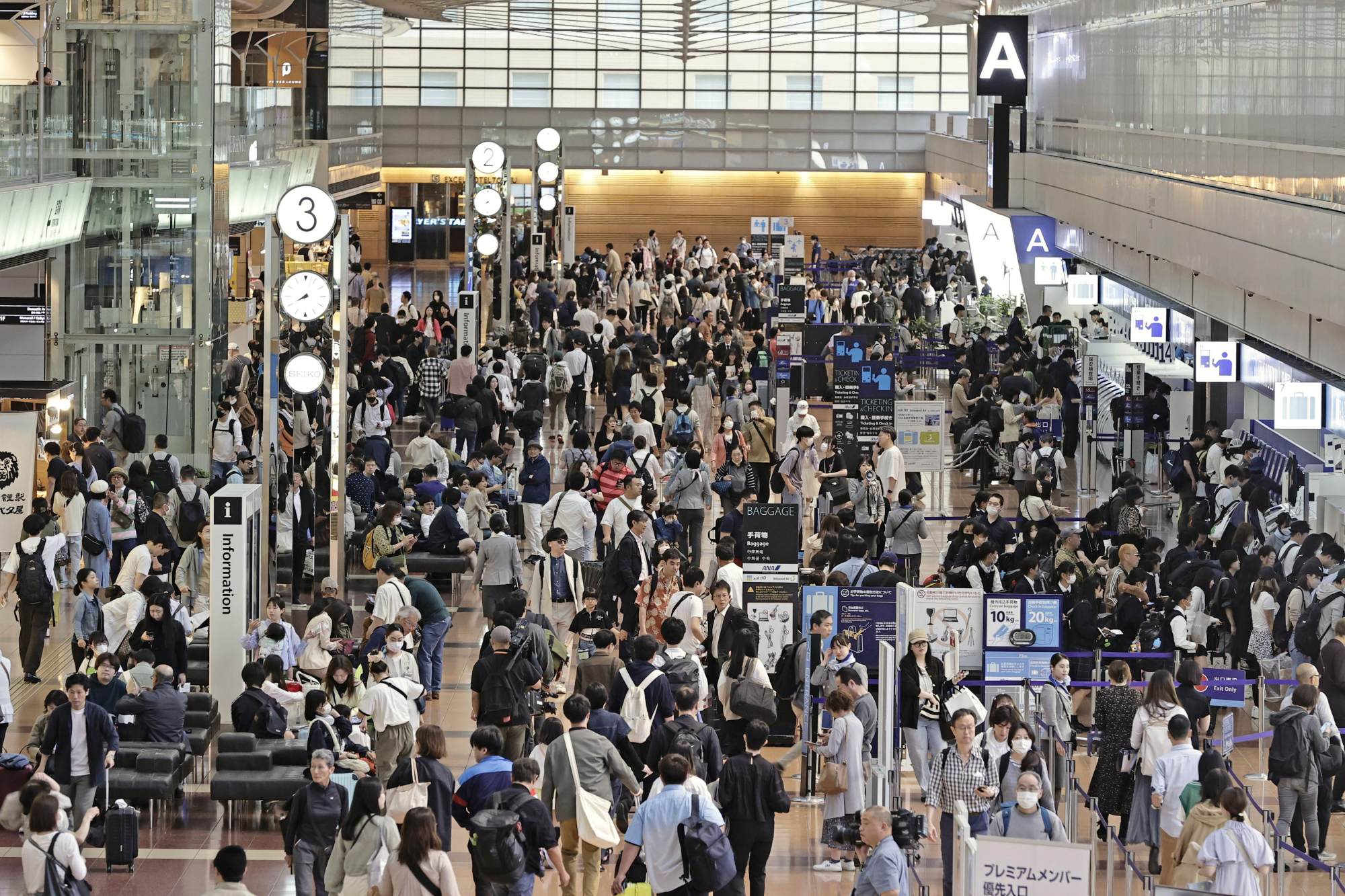“I can definitely see it around us more and more every day,” said Izumi Tsuji, a sociologist and professor of culture at Tokyo’s Chuo University.
While there appeared to be no empirical evidence available, he said more people in Japan could be resorting to rudeness and aggression when faced with polite resistance for several reasons.
“People who sense they are in a weaker position in a situation have realised that if they argue and push back, then they put themselves in a stronger position,” Tsuji said.
Observers say younger people and women are increasingly using this tactic, safe in the knowledge that the person being argued with represents a company or organisation and that – under the unwritten rules of Japan’s business world – it would be inappropriate for members of staff to argue back, even if they are clearly in the right.
“I also think that there is greater miscommunication in Japanese society,” Tsuji told This Week In Asia. “We have more people from other cultures in Japan and more Japanese are travelling abroad, so there is a greater likelihood of misunderstandings.”
The most significant factor behind the spike in such incidents is that people in Japan are under greater stress than in the past, Tsuji said.
“The situation in our society is not good,” he said. “The economy is getting worse and worse, people are worried about rising prices, and they are stressed as they think about their future.”
People are worried about rising prices, and they are stressed as they think about their future
“When I was younger, the future appeared bright, and I was not worried about my career, the economy or anything else,” Tsuji added. “I’m fortunate as I’m doing much better than a lot of people now – I have a job, a secure position in my university and an income – but it is very difficult for many people to be optimistic about the future.”
The problem of aggressive and abusive members of the public has become so acute that Tokyo Metropolitan Government announced on April 22 that it was considering drawing up a local ordinance to provide a clear definition of “customer harassment” against service-sector staff and other workers, in a bid to deter potential offenders.
The definition that the local authority has proposed would include “assault, intimidation and other unlawful acts, or unreasonable behaviour – such as verbal abuse and excessive demands – that harm workplace environments”. It’s unclear whether the proposed legislation would include any form of punishment.
In the town of Tenri, in Nara prefecture, the local education authority has set up a new office dedicated to handling complaints from parents in a move to put some distance between staff and incensed parents protesting against schools’ decisions or policies.
In one case, a boy’s parents demanded that his teacher apologise to them at their home after their son had kicked a hole in a wall, citing school-related stress, education officials from the prefecture told the Mainichi newspaper. In another case, a parent stood outside a school every morning and evening to berate a staff member; while yet another set of parents insisted that a teacher walk their child home after school every day.
The East Japan Railway Company recently published a new employee handbook containing instructions on dealing with problematic passengers who physically attack or threaten staff. It states that staff should “continue to sincerely respond to customers’ opinions and requests”, while noting that employee safety is the priority and serious cases must be reported to the police.
An employee of a Japanese airline, who asked not to be named for fear of repercussions, told This Week in Asia that dealing with demanding and rude passengers was a daily chore.
“They have short tempers and complain about everything – the length of the line to check in, the security checks, the baggage limits,” she said.

“They complain about things that we cannot change, like the weather or flights being delayed or cancelled,” the employee said. “They know we have no control over the weather, but it’s like they just want to complain and need someone to apologise to them.”
Travellers in business class were the worst culprits, she said. “They think they are special because they are flying in business class, and they look down on everyone else, including the ground staff. After a day of listening to their complaints, I have to say that I often feel terrible.”
The airline employee said she had no choice but to keep calm and be polite to such customers, even if they were aggressive.
The poll found that about 65 per cent of the 661 people surveyed had been subjected to verbal abuse and insults by their superiors, had had their achievements ignored, or had been given “excessive or harsh work”. Nearly 10 per cent of people reported sexual or physical harassment, and almost 5 per cent said they had been assaulted or injured in the workplace.
Around 56 per cent of respondents said their employers were not taking adequate measures to prevent workplace bullying, despite the introduction of a law in 2020 designed to combat the problem.


